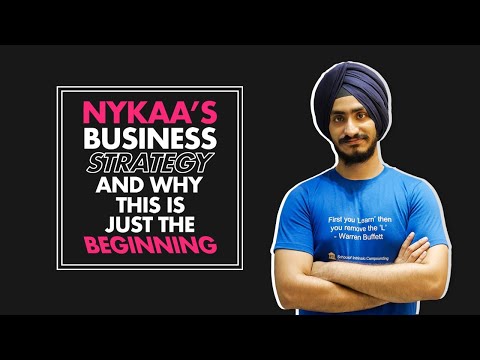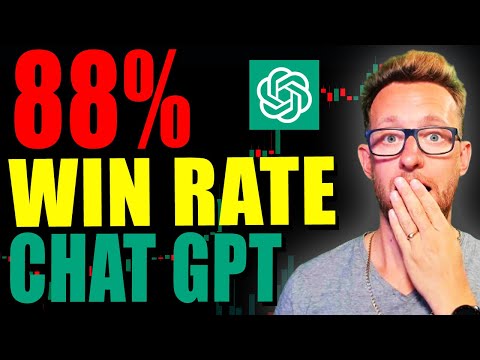How Nykaa is beating others? Business and IPO Analysis

Hi Investors! Welcome to SOIC! We'll be analysing Nykaa's business in this video. The purpose of analysing these new age businesses is, to be aware of the upcoming trends. To also make you aware of the ongoing trends outside & within India. I would like to share an interesting fact about Warren Buffett before we begin the analysis.
Someone asked Mr. Buffett, how does one go about creating a Moat in a business? What could a small businessperson do to build a Moat in their business? Or what special element can be brought within one's business? I liked Mr. Buffett's response—let's hear his response. "...a small business owner or a large business owner for that matter,
never stop thinking about how to delight your customer. Not to satisfy your customer but to DELIGHT your customer. When you wake up in the morning, start thinking about it, think about it during the day, think about it at night & then dream about it." Basically, what he means is you must know how to Delight a customer. If a businessperson, in the morning thinks about what a customer's problem is & how we can delight the customers? This creates a positive feedback loop.
This is also known as Flywheel Effect. We'll observe this a lot in Nykaa's business analysis. We'll do something different in this business analysis. We'll discuss the Size of Opportunity, the key pillars of Nykaa, the problems this business wants to solve for the society, different Flywheels, 2 Business Segments, Valuations & Sources of Risk, when the IPO comes out, will the valuation be worth it? or will it be expensive? We'll try to do some financial modelling, To start with, we'll 1st try to understand the skin care products or BPC Products or BPC Products: Beauty & Personal Care Products If we consider the global industry, there's something common in this industry. The most common thing is that the supply side scattered.
When we consider the Western & South-East Asian countries, there isn't just 1 brand that's a market leader, every brand has either 1 or 2% market share. I think Lakmé had 6-7% market share, in India, the supply side is also scattered. The market share isn't consolidated. 2nd key feature: Recession Free Industry When we consider this industry, in the last 14 yrs. since 2005, if we consider the BPC products, $134 billion, the industry's now worth $ 236 billion.
In terms of skincare, the industry from $68 billion, it's now $140 billion. For colour cosmetics, from 472 billion, it's now grown to $72 billion. In the fragrance sector, from $28 billion it's now ~$51 billion.
Interestingly, between 2008-10 there was a recession. During that time, the industry growth rate from decreased from 5% to 3.2% then rose to 4.1% What this means is that, globally there isn't a trend for recession. The trend indicates that the industry is recession-proof.
In the Indian context, the Beauty & Personal Care Products Industry Let's observe the speed at of online penetration In 2016, only 2% of the industry had online penetration people were ordering online through E-Commerce in the BPC market, Beauty & Personal Care Products In 2019, there was a 70% CAGR growth with online penetration in ~6% of industry In 2020, on the other hand, there was a growth of 30% CAGR Presently there's been a penetration of 8% in the E-Commerce industry When we consider only the online E-Commerce in BPC Products Industry the industry's worth ~Rs. 9,100 cr. This is very important for you to understand If you're watching this video, you could write this somewhere, because when we'll discuss the valuations, we'll keep referring to the Total Addressable Market. The current size of the market is Rs. 9,100 cr. When we consider the entire BPC Industry in India, & compare it with other countries, This data is of 2019, the market size is worth ~$18 billion In 2019, the penetration was 6%, it's currently at 8%, whereas in China, the E-Commerce penetration is 25-35%. In the U.S.A., the E-Commerce penetration is ~15-20% Let's consider the Total Addressable Market of the BPC Industry it'll be worth ~$28 billion by ~FY25 The Size of O pportunity would increase to ~$ 28 billion We can assume the online penetration If you're watching this video, please note this point.
Let's now consider the fashion industry, we just discussed the BPC Industry. Those who have females family members, & I also observe this trend myself if anyone is ordering cosmetics from Nykaa or skin care products it's a part of the BPC Industry Let's talk about the Fashion Industry, because Nykaa also has a fashion business. In India, the online penetration of the fashion industry is 12% which is ~>8% in the BPC Industry Globally, in China the online penetration is 35-40% whereas in the U.S.A. it was ~30-35% In India, the industry is worth $54 billion which in the next 5 yrs can increase to $124 billion If that happens or not is remains to be seen, because of the pandemic.
These are anyway, the estimates. We've discussed the industry size. Now we'll discuss Nykaa, which is a market leader in the BPC Industry's online segment. Nykaa just as any company that grows fast, we've discussed Saregama, Deepak Nitrite, Sona Comstar (soon) on our channel.
Similarly there's a multiple lollapalooza effect playing out for Nykaa, how is this helping Nykaa? 1st: Increasing penetration of internet & smart phones. 2nd: A premiumisation wave within BPC Products in cosmetic products which we'll talk about 3rd: Young population we'll discuss the age There's a rise of social media influencers, we've observed this trend of social media influencers on platforms like YouTube, Twitter, etc. I've seen social media influencers with >500-600k followers, they can influence different categories. Another trend is that of Beauty & Personal Care (BPC) Products In India, the industry is growing by 13% CAGR.
Let's 1st discuss the penetration of internet & smartphones in India. Interestingly, in India the internet penetration is still 45% in 2020, in 2025 it's expected to be 63%, & in 2030 it's expected to be 75% In India the smartphone penetration is 39% (2020), it's expected to grow to 57% in 2025 & 72% in 2030. In India, the online shopping penetration is only 14%, it's 77% in U.S.A. & in China it's 54%. In India, this is expected to grow to ~36% in the next decade. This was the 1st trend because there's some penetration in these segments, this will cause other related categories to also grow.
Charlie Munger also tells us repeatedly that If you're a duck in a pond, & the water level rises is similar to bull market Tailwinds also mean that the internet penetration is rising 2nd key element: Generation Z & Millennials population in India Generation Z consists of those who are presently of age 10-24 yrs. Millennials are those who are presently of age 25-30 yrs old This is why we say that this is a golden decade at present or a golden century for India. We have population dividend we are a country of young population At present 51% of the population is between the ages 10-34 yrs. This is the golden century for India, if our policy framework gets corrected. This another ongoing trend 3rd key trend: with multiple lollapalooza effect within this business Brand loyalty within the BPC Industry is, only 66% aren't loyal to 1 brand.
The BPC category, is very important for you to understand Nykaa The consumer's loyalty is not even 66%, that they wouldn't do a repeat purchase. Even if someone repurchases, let's suppose someone purchases a kajal 66% of the time, she wouldn't purchase the product again. 34% of the times, if she re-purchases the product What's going to happen is that, she's going to go through the entire process She would basically compare the product with other brands. This is the norm of the industry, there's no brand loyalty That's why the market share is 1-2% for different brands The supply side is scattered, no single brand has has more market share. Another interesting aspect is if we consider Nykaa's Value Proposition Let's talk about Nykaa interestingly, Nykaa's customer response 90% of the customers use Nykaa because of the variety they offer 68% of the customers use Nykaa because of the genuine products available whereas 63% visit the platform for deals & discounts & 62% visit their platform for easy navigation.
Let's first discuss the genuine products that's helped Nykaa grow Nykaa has an E-Commerce platform to sell the Beauty & Personal Care (BPC) Products The problem with online platforms is trust, this happened with my sister as well, she'd ordered a product via E-Commerce it was a cosmetic product but it was fake Nykaa's website as we can see here, the brands they've acquired their certificates. I experimented with my family, there are about 27-28 people of which 9-10 are women, I spoke to all of them 70% of them surprisingly shop from Nykaa I asked them if they'd ever received a fake product from Nykaa, this hasn't happened to them in the last 3 yrs. 1st key advantage in business like Nykaa: Authenticity of the product there's no chance of counterfeiting the products They've won the trust of the customers.
2nd key element in their products: Variety What's difficult about the business is that It's difficult to make an E-Commerce platform in the BPC category because a large variety is required This is a channel for the brands & customers Let's suppose a customer like Christian Dior's product they have only 1 store in Delhi if customers visit the website or app, since Christian Dior is using Nykaa's platform they'll find many Christian Dior products on their platform Part of the reason is that Nykaa has am inventory led model. Nykaa does its purchases directly through Nykaa or buys directly through authorised dealers. They also maintain the inventory with themselves. That's why the products are original & Nykaa also offers a variety This business's challenge is of SKUs how one can maintain different products, Even at SOIC we believe in delighting the students, as part of the SOIC Membership, we've conducted >40 Continuous Classes The purpose of SOIC Continuous Classes, we have >100 lessons in the Intensive Course In our Continuous Classes, we want to teach our students about how the stock market keeps evolving how different sectors, businesses come up, we continuously cover them In the recent 7-8 months, we've covered ~6-7 different sectors We covered the general insurance & life insurance sector the last time.
10-11 months ago we covered the Chemical Sector wherein we covered Deepak Nitrite, DMCC, Navin Fluorine, & Arti Industries We also covered the Banking & Finance Sector, we discussed Awash Finance, Bajaj Finance, & HDFC Bank In the last 2 months, we covered the Aroma Chemical industry player, Oriental Aromatics & Neogen Chemicals We also conducted a webinar about the API & Pharma industry in May, wherein we discussed Hikal, Indoco Remedies, etc. At SOIC we believe that stock market is a journey & not a destination The link to the membership is in description. Let's consider Nykaa's marketplace & understand the value proposition of the seller & buyer For the buyer here, the customer value proposition for them is clear The buyer, there are >11 million cumulative transacting consumer base what's good for the buyers is that Nykaa has 100% authentic products & an eco-system of fellow enthusiasts As well as convenient shopping experience, there's a variety of choices buyers at this time, are able to advertise their products, we'll talk about some e.g. This is the Omni-channel Distribution & Warehousing: a plug & play model Suppose there's a small brand in the UK or a luxury brand who wants to sell in India To sell in India, they'll have to set up distribution whereas, Nykaa already has 44 million app downloads Nykaa already has ~73 stores this is an Omni-Channel strategy It makes more sense to tie up/collaborate with Nykaa, that means that if you set up on your own, it would be time consuming.
This is the value proposition of the market place How does Nykaa entice the customers? What does this data tell us? If we consider the BPC Products 81% of the customer follow the YouTube channels if you've subscribed to a YouTube channel you'll know how to put on a face mask, different shades of lipstick, there's huge influence of such channels Considering this, Nykaa approached the influencers they've built Nykaa Army In their org. they have >1350 social media influencers who livestream to promote these products They also have an affiliate programmes where social media influencers sell products through their platform They receive a % commission Again, they've built Incentive-Cost bias Another interesting aspect about Nykaa is, I wouldn't have found out about it if I hadn't interacted with another woman I've spoken to my mother & my sister I asked them what they liked about the Nykaa app? They had a good answer, my sister was looking at a lipstick she liked, that lipstick had 90k reviews These 90k reviews weren't just 90k reviews for the lipstick, there was an option to review the lipstick shade with one's skin tone some customers had shared some photos with their reviews, we can see the no. of reviews on the phone app. When we. consider hair products, there are also of different types, some have curly or straight hair, through the review you can figure out which product would match your requirements.
There's an interesting principle in psychology, Relatability if you go to a foreign country & meet an Indian there, there's a case of relatability. The positive feedback loop built for the reviews there's a lot of relatability due to which more customers are attracted which then generates more reviews & increases the engagement. They've built a positive feedback loop for reviews on their platform. Let's now consider the seller's perspective, what is the seller gaining out of this platform? I would like to discuss a case study with you, I had visited the Nykaa Luxe store at The Chanakya Mall They recently tied up with Charlotte Tilbury, she's a famous make-up artist from the UK Charlotte Tilbury entered the Indian markets by collaborating with Nykaa instead of the direct approach.
This is due to Nykaa's Omni-Channel strategy, we'll understand the reason later. As we can see some of the pictures of their stores, they've got displays at several stores It would have been difficult for them to directly enter the Indian market to receive this kind of distribution reach 2nd case study: Huda Beauty also owned by a make-up artist They also collaborated with Nykaa & is catered through imports. This brand is imported to India. Within 24 hrs. Nykaa managed to sell 6k lipstick for them. This is the value proposition for the seller.
Interestingly, Nykaa is becoming an Omni-Channel, this means, there's an online channel where you sell products through your websites, & the other is offline-channel, where your retail is conducted through stores. Omni-Channel is a way to sell products through different methods. Nykaa at this time is implementing the Omni-Channel strategy Currently they have ~73 stores, interestingly they have 3 types of stores: 1. Nykaa Luxe, 2. Nykaa On Trend,
3. Nykaa Kiosks Nykaa Luxe stores are of ~1,150 sq. ft. they have 35 such stores In Delhi, since I live in Delhi, Pacific Mall has such a store, The Chanakya Mall also has such a store I visited these stores to understand their strategy. Nykaa Luxe stores sell luxury brands which are expensive. They're selling products of a popular brand: MAC They also have some exclusive tie-ups which the brands displayed.
The products are on the luxury end. Nykaa On Trend stores have products that are popularly sold on their platform. Ambience Mall, Gurgaon has a Nykaa On Trend store, They also have Kiosks, Khan Market, I think has the smallest Nykaa store in Delhi.
That's meant for exposure. Omni-Channel is interesting, This is a case study from Mckinsy, we get to know something interesting about the fashion industry, Globally, 48-50% of the demand is always store influenced. Let's assume that a woman wants to try out a cosmetic product, she'll visit the store. 50% of the times, her choices will be influenced by the store There are 2 purposes through which it's an Omni-Channel. 1. To give a customer an off-line experience to try a product
2. Collaboration with luxury brand & show an offline presence Nykaa already has an online presence in the market place, this also builds an offline presence. It becomes easier for a brand to enter Indian markets. The SOIC Accelerator Pitch for Nykaa Nykaa's business has significant customer engagement.
How do we get to know about this engagement? In 2018, Ms. Falguni Nayar in a speech mentioned they have 7 million app downloads, Currently their app has had ~44 million downloads 2. The promoter interestingly has substantial skin in the game E-Commerce business involves a lot of cash burning but the promoter holding is still ~54% The Unit Economics of the business isn't bad. We'll discuss the Unit Economics later. The 2nd key aspect: Unit Economics of the business is positive. This business has Flywheel models.
1. Experience Flywheel: as we'd discussed about the reviews, more engagement, better experience, richer content & higher organic traffic due to which there's Transaction Flywheel because there's more traffic on the website, there are more customers, there are more lifestyle segment, there are more brands & sellers As a result, more transactions are happening.
2021-09-18 06:25


